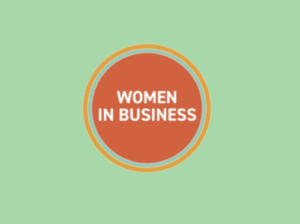 Emergenetics is the merging of two ideas – our behavior emerging from our life experiences
Emergenetics is the merging of two ideas – our behavior emerging from our life experiences
along with our genetic traits, and that concept underlies the work of Emergenetics International,
founded by Geil Browning, Ph.D. We spoke with Dr. Browning to learn more about her work and
how the Denver South-based company is helping organizations improve their operations and
unlock their true potential.
Denver South: Tell us about Emergenetics and how the company got started.
Geil Browning: Emergentics evaluates how people think in order to simplify human connections. We usually start by giving people a paper-and-pencil test that helps them understand their gifts and structural, social, and conceptual thinking. Then we help them organize and understand their expressiveness, assertiveness, inflexibility, and behaviors. Once you understand that you can understand yourself and others. We also have the Student Teacher Emergenetics Program (STEP) that does a lot of work with children 11 to 18 years of age in school settings.
However, I should start from the beginning. My mother and grandmother and even my great grandmother were teachers. As a child, I would sit around the kitchen table with my mother and grandmother as they would talk about “Johnny” or “Susie” having a problem reading or whatever, and I would think, “If we could just figure out how those students think we could be better teachers.”
I started teaching sixth grade at age 20 and learned by experience how to and not to communicate with students. Then, later, I was teaching at a university, and I read about Roger Sperry who won a Nobel Prize in 1981 for his work on cerebral lateralization or “right-brain, left-brain thinking.” So, I was always thinking about thinking.
I moved from Omaha, Nebraska, to Denver in the early 1980s. I’d had my children and was thinking about what to do for the rest of my life. I talked with a CEO and asked him what opportunities there were for me in Denver. He said you can be an oil person or an entrepreneur. If you’re an entrepreneur the bankers will help you. So, I started thinking about starting a company to figure out how kids think.
DS: It’s great to hear how supportive Denver was of entrepreneurialism in the 1980s and 1990s.
GB: It was truly like that. We had the Petroleum Club and in South Denver there was the Metropolitan Club. The town was not based on having large corporate headquarters. Now look at it today. It’s an amazing thing to have lived here and seen the growth and how it’s happened and where we are.
DS: How would you say the Denver South business community is today versus when you started out?
GB: When we started I was working out of my basement. So, we didn’t have the comradeship or business conversations that you have when you’re working in a business setting. When we moved to an office it was different. What I love about being in this location is that I’ve seen it grow and now we have a lot of energy in the community. Plus, I’m 12 miles from my house and 25 or 30 minutes from the airport, which is nice since we have people who fly in from around the world for training; they can get to our office very quickly. The Hilton hotel is right in our backyard. It still amazes me that people will drive from far away to visit our office, but they say they love the greenery and they love that they can go out and take a walk and be in a comfortable and beautiful setting.
Regarding the nature of the business community, it’s gotten more sophisticated.
DS: What advice would you give to other people just starting out as entrepreneurs?
GB: Believe in your dreams. I always had big dreams but I never believed that I could actually do it. I’m a child of the 1950s and didn’t believe I could grow up and be a business owner. So, make those dreams and believe that they will happen. Also, do what you love. Nothing else matters.
Also, stick with it. I went to a woman who was well known in the consulting community, and I said to her, “Well, can you give me some advice?” She said, “This town is already full of consulting businesses.” I walked away from there and thought, “I’m going to show you.”
I always thought I’d end up back in education. Then the wild card came along and allowed me to be an entrepreneur. But I think if you want to be successful you have to do it alone.